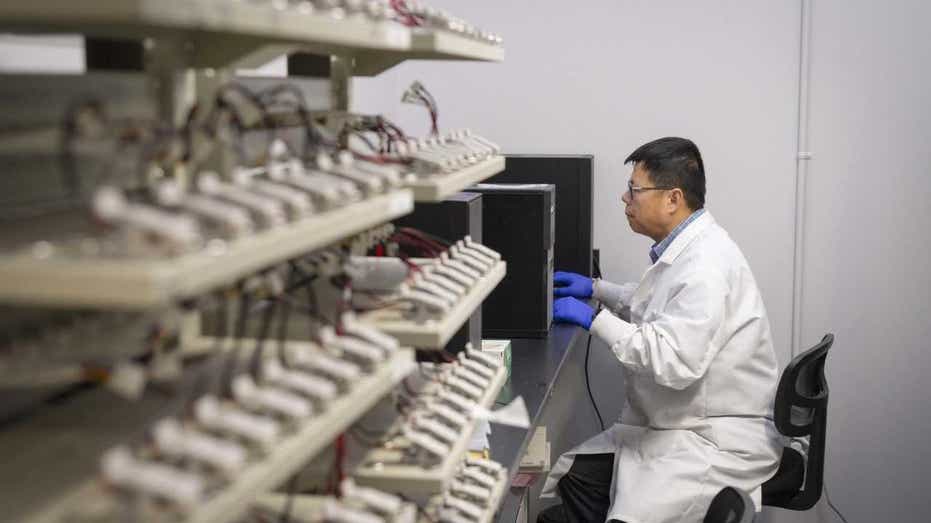📰 New tech recovers 92% of EV battery metals

The article discusses the growing demand for clean energy and the challenge of dealing with dead lithium-ion batteries. Researchers at Worcester Polytechnic Institute (WPI) have developed a new recycling method that transforms old batteries into high-performing components with minimal environmental impact. This innovation addresses the issue of battery waste and the environmental damage caused by mining for raw materials. The method developed by the WPI team involves using hydrometallurgy to extract critical metals from spent batteries and upcycle them into new cathode materials for next-gen batteries. This approach not only reduces dependence on mining but also produces recycled batteries that perform just as well as new ones, contributing to a more sustainable energy future. The upcycling process could lead to a circular battery economy where old batteries power new technology without harming the planet, redefining energy storage in a world in need of sustainable solutions.
📰 Your phone predicts an earthquake

Google has utilized the Android operating system to create a massive earthquake detection network using billions of phones. Android phones can provide early warnings about earthquakes by detecting P-waves through their accelerometers. This system sends alerts before the more damaging S-waves hit, giving people 15 to 60 seconds to take safety precautions. The network has detected over 11,000 earthquakes globally, with minimal false alarms. iPhone users can use the app MyShake for similar earthquake alerts. It is recommended to keep the earthquake detection feature enabled, even if you don’t live in a high-risk area.
📰 Meta’s new wearable lets you control screens hands-free

Meta has developed a gesture control wristband that allows users to control computers without a mouse or keyboard. The wristband uses electrical signals from muscles to interpret hand movements, acting as a bridge between the nervous system and devices. Unlike traditional gesture systems, this device relies solely on muscle activity, making it accessible for individuals with mobility issues. The technology, known as surface electromyography (sEMG), can recognize gestures with high accuracy and does not require individual calibration. Meta’s wristband aims to revolutionize human-computer interaction by offering a seamless and intuitive way to interact with technology, especially for those looking for a faster and more inclusive method. Although not yet available to consumers, the wristband hints at the future direction of technology and the potential for more natural interfaces.
📰 Clever EV hack could reinvent diesel trucking

Revoy, a California-based startup, is revolutionizing electric trucking by introducing an innovative electric dolly system that complements diesel engines to reduce emissions and fuel costs. In 2025, heavy-duty trucks surpassed passenger vehicles as the top polluters in the U.S., highlighting the urgent need to address emissions from freight transportation. Electric semis face challenges like high costs, limited range, and slow charging times, making them impractical for many trucking companies with thin profit margins. Revoy’s electric dolly solution bridges this gap by providing a cost-effective, easy-to-install system that enhances truck efficiency and safety without requiring major modifications. The dolly system features a powerful battery pack, sensors for monitoring blind spots, and a quick swap station model that eliminates long charging times, making it a practical and scalable solution for electrifying existing diesel rigs.
📰 AI scam alerts now on Venmo and PayPal: What you need to know

PayPal and Venmo have introduced AI-powered scam alerts for Friends and Family payments to help users avoid sending money to scammers. The new alert system is more advanced than generic pop-ups, adapting in real time to the risk level of transactions. Using machine learning models, the alerts analyze data to detect new scam patterns and provide tailored warnings based on the likelihood of fraud. In high-risk cases, PayPal may even block the payment automatically. The system aims to empower users to make informed decisions and stay ahead of scammers by combining AI technology with user-focused design. It is recommended to follow simple security practices like using strong passwords, limiting public access to personal information, and installing antivirus software to enhance online safety.
0개의 댓글